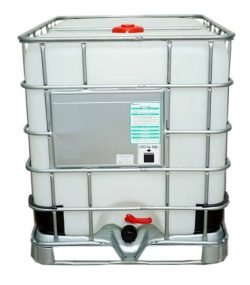Learn How To Dispose Of An Empty 55-Gallon Drum Container
Used in the food, beverage, pharmaceutical, agricultural, and other industries, 55-gallon drum steel containers are subject to the Resource Conservation and Recovery Act. This set of federal rules governs the disposal of drum containers based upon their former contents and the hazard level of these contents. While certain materials are subject to the guidelines set forth by the United States Environmental Protection Agency (EPA), others merit little concern. If you have drum containers lying around, the following is everything you need to know about how to dispose of an empty 55-gallon drum container.
If you used your containers to hold liquids, powders, or other solid materials that are deemed non-hazardous by the EPA, you can get rid of these by recycling them or disposing of them in traditional solid waste streams. However, prior to disposal, you should empty the containers’ contents in suitable manner or dry the drums out. You’ll find that even when empty and not posing any health threats, you can’t simply leave drums by your dumpster for normal pickup. You can contact a local landfill for pickup or you can work with a company that specializes in offering RCRA empty container disposal service.
RCRA empty container disposal rules become more complex when drums have housed hazardous materials in the past. For instance, you must empty the contents of your drums such that less than 3% of the total weight of containers is reflective of residual materials. Depending upon the hazard level of the stored contents, you may need to rinse your drums out as well using an approved solution.
If your drums contained compressed gas, they will not be considered empty by weight. Instead, these containers must be punctured or compressed to release all trapped hazards. Puncturing or compressing containers that are under pressure is ill-advised. This is a task that’s best handled by a properly licensed and experienced disposal service.
Failing to adhere to the standards set forth by the USEPA under the RCRA can result in personal injury, property damage, soil contamination, and damage to natural habitats and waterways in the region. For companies and consumers alike, it can also result in hefty fines and other painful penalties. To make sure that you’re fully compliant with RCRA’s rules, get in touch ADCO Environmental Services, LLC to find out about our options in special waste disposal.




